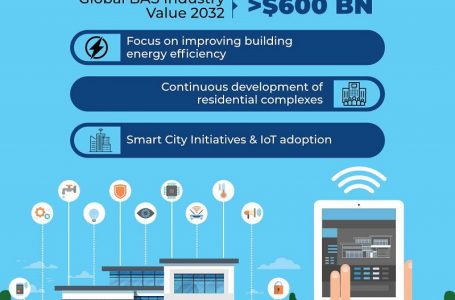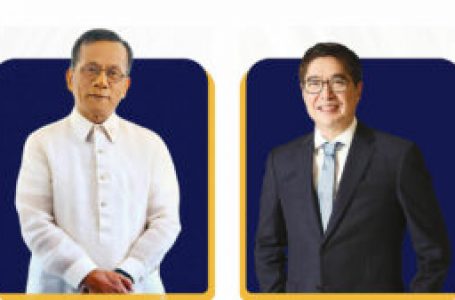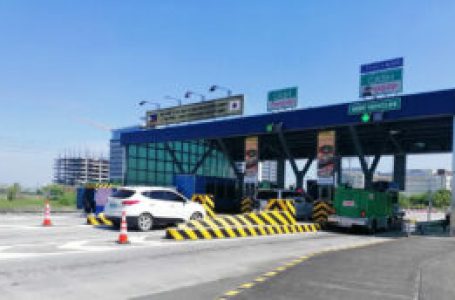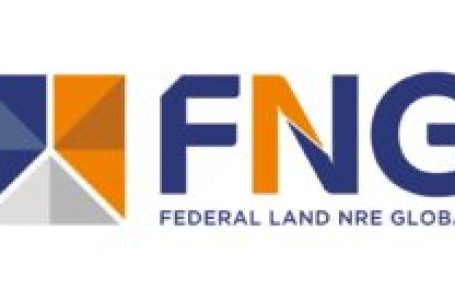Aermont, Owner of Pinewood, Among Potential Buyers for £850m Village Hotels
How shifting dynamics can help revitalize your workforce

IN BRIEF:
• The EY 2023 Work Reimagined Survey, which sourced data from 17,050 employees and 1,575 employers across 25 sectors and more than 20 geographies, highlights key workforce trends that are defining the “next normal” in the workplace.
• Employers and employees have distinctly different perspectives on the “next normal” of work, resulting in differences between employer and employee priorities.
• Leaders navigating the way forward will see the Great Rebalance as an opportunity to re-energize their workforce strategy, making it technologically evolved yet inherently people-centric, agile, and resilient.
In the aftermath of the COVID-19 pandemic, the Philippine labor market has shown a remarkable recovery and transformation. Comparing data from Philippine Statistics Authority (PSA) Labor Force Surveys in April 2020 and February 2024, an increase in employment rates — from 82.4% to 96.5% — has been noted. This represents a substantial growth of 15.15 million in the workforce, showing a robust entry of the working-age population into active employment since the onslaught of the pandemic.
Amidst the broader economic rebound, one of the most striking differences that can be derived from the pre-pandemic and post-pandemic Labor Force Surveys is the reduction of average weekly work hours, from 43.2 hours in 2019 to 40.1 hours in 2024. It coincides with a strong economic recovery post-pandemic. According to the Philippine News Agency (PNA), the government’s official news service, the economy continued to flourish after a sharp rebound to 5.6% GDP growth in 2021 from the 2020 downturn. According to the DoF, it achieved an unprecedented 7.6% growth in 2022, and last year, the country posted 5.6% growth, making it the fastest growing economy among its peers in the Association of Southeast Asian Nations (ASEAN).
This three-hour reduction might seem modest, but it serves as a microcosm of current global trends that have been magnified by the pandemic. These include the rapid adoption of remote work, increased flexibility, and a broader cultural shift towards the “Great Rebalancing” — a movement to recalibrate work policies and prioritize employee well-being and personalized work arrangements, often entailing shorter hours.
Today, employees are motivated by the desire for more comprehensive total rewards packages, improved well-being, and the necessary skills to thrive in a world that increasingly values work flexibility.
According to the EY 2023 Work Reimagined Survey, these trends are integral to the seismic shifts defining the “next normal” in work. This survey was conducted through an anonymous online poll involving 17,050 employees and 1,575 employers across 25 different sectors and more than 20 geographies, including the Americas, Asia-Pacific (including Southeast Asia (SEA) — Indonesia, Malaysia, the Philippines and Singapore), and EMEIA (Europe, the Middle East, India, and Africa).
The survey underscores distinct perspectives on work between employers and employees, particularly regarding the balance of power in the workplace. It highlights that while employers generally believe economic challenges will reduce employee turnover, as many as 34% of employees are considering changing jobs within this year. It also shows that as hybrid work evolves, it demands a deeper understanding of how technology, office infrastructure, and employee amenities impact productivity, organizational cohesion, and trust.
REBALANCING POWER DYNAMICSTraditionally, employers held more influence and control in the workplace.
However, perceptions have shifted since the pre-pandemic period, with fewer respondents now believing that employers maintain the upper hand.
Interpreting current market conditions from various perspectives can influence how employers and employees perceive each other. For example, the disparity in their views on financial pressures can create an imbalance in workplace power dynamics. This imbalance is evident in survey findings, where only 47% of employees believe their organization is facing growth or profit challenges, compared to 61% of employers.
RIGHTSIZING REWARDS, BOOSTING RETENTION RATESTo secure sought-after skills, organizations must develop talent from within or recruit new hires effectively. One way to do this is to ensure that compensation and career opportunities are competitive, both internally and externally. Both employees (80%) and employers (79%) surveyed also agree that “total rewards” programs need “moderate” to “extensive” changes. Total rewards encompass various factors like time off, recognition, well-being, and health and retirement benefits.
Organizations can improve their ability to attract and retain talent by developing offerings that enhance the employee value proposition (EVP) through market benchmarking and internal surveys. By restructuring total rewards programs to align with the broader objectives of the EVP, these initiatives can positively impact perceptions of change and transformation, innovative work methods, and leadership approaches.
FOSTERING A PEOPLE-FIRST CULTUREA major action point is to define and cultivate a people-first culture — with humans at the center — and emphasizing trust. However, only 64% of employees surveyed agreed with the statement that employees feel trusted and empowered by their leaders compared with employers who agreed (81%), showing a 17-point gap.
Trust and empathy foster positive results, essential for effective leadership, team cohesion, and organizational success. These work values can be exemplified by transitioning from individual to collaborative thinking — a shift from a “me” mindset to a co-created “we” mindset. Meanwhile, transparency and tracking of behaviors, attitudes, and results from diverse data can help build trust. Understanding these metrics can enhance a sustainable collective mission, purpose, and culture.
ENHANCING THE WORKPLACE EXPERIENCEEmployers and employees hold divergent views on talent, culture, and leadership. Specifically, 76% of employers agreed that “Leadership cares about employees as people,” compared to only 54% of employees. On the other hand, 59% of employees and 78% of employers agreed that “Employees have the ability to innovate and/or have time for unplanned collaboration.”
These gaps underscore the need for an overall workplace environment aligned with employees’ realities to foster a more engaging and supportive workspace, thereby boosting satisfaction, retention, and productivity.
REINVENTING WORKIn today’s work landscape, flexibility in work arrangements is not just desired but expected, especially for knowledge-based roles, with more than a third of employees expressing a preference for full remote work. To adapt, organizations must pinpoint which roles can effectively function remotely and devise comprehensive strategies, leveraging appropriate technologies and refining processes to facilitate seamless transitions to hybrid work environments. This approach should encompass not only work operations but also learning initiatives and the nurturing of company culture.
Moreover, establishing guidelines for sourcing talent across regions can mitigate risk while maximizing the advantages of flexible work for both the organization and its mobile employees. While real estate may not directly impact employee satisfaction, the study shows that it does influence culture, productivity, and retention. Therefore, investing in well-designed spaces that foster social connections and collaboration can yield significant returns.
UPSCALING AIBoth employers and employees recognize the promise of Generative Artificial Intelligence (GenAI), which has recently entered mainstream technology discussions. One of the key advantages of this disruptive technology is its ability to generate initial drafts of work, which can then be reviewed and refined by human users.
In Southeast Asia, as high as 64% of employees and 86% of employers have a positive outlook on the potential of GenAI to enhance working flexibility. Despite this, only 25% are committed to offering training in GenAI-related skills.
In addition to acquiring new technical skills such as in GenAI, organizations must also evaluate employee soft skills such as critical thinking and resilience to ensure that their talent strategies align with business objectives, commitments to diversity, equity, and inclusion (DE&I), and fosters a culture of trust.
REDEFINING WORKFORCE DYNAMICSAmidst the evolving work landscape and dynamics, companies are urged to equip their teams to handle uncertainty and to offer the necessary financial, physical, emotional, and social support to help them excel. More and more, fostering an environment where employees can thrive and better support organizational success is becoming an imperative.
This article is for general information only and is not a substitute for professional advice where the facts and circumstances warrant. The views and opinions expressed above are those of the author and do not necessarily represent the views of SGV & Co.
Rossana A. Fajardo is the EY ASEAN business consulting leader and the consulting service line leader of SGV & Co.














